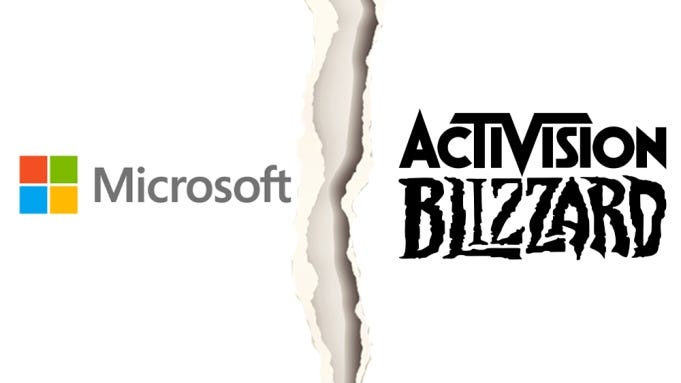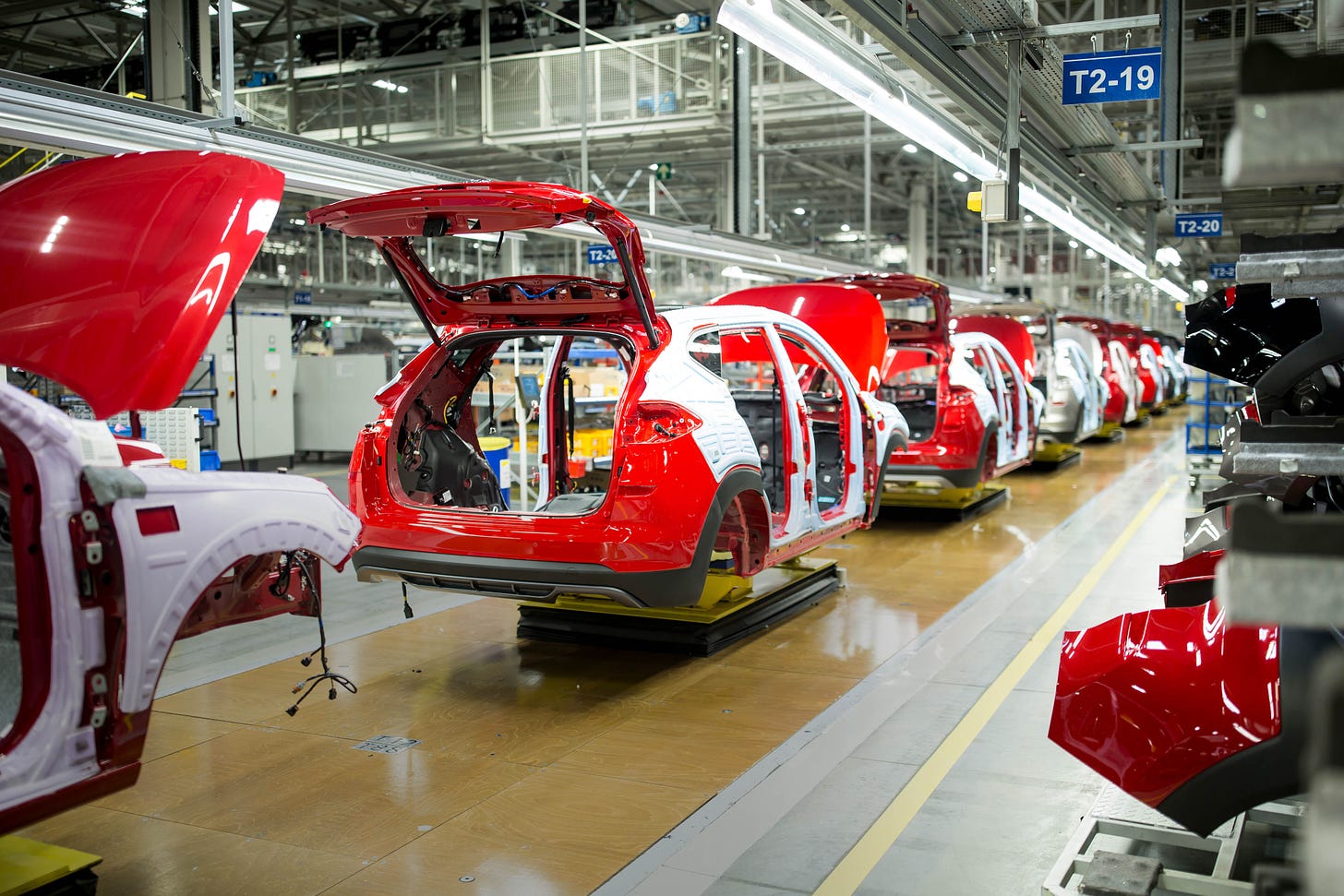💸 Big Tech Earnings, Microsoft's Activision Setback, and Google Boosts its Web3 Presence. Newsletter #20
Microsoft’s Activision Setback
Big Tech Earnings
US GDP Growth Slows
Another Bank Faces Big Troubles
Google Boosts its Web3 Presence
Microsoft’s Activision Setback
Microsoft’s acquisition of Activision looks set to be scuppered by the UK’s Competition and Markets Authority (CMA). The CMA said it would block the takeover on antitrust grounds.
It believes Microsoft could use its control over Activision to corner the nascent market for cloud-based gaming.

Despite the setback, Microsoft shares jumped over 7% on Wednesday after it announced a resurgence in its cloud computing business and its determination to maintain its early lead on generative AI.
The whole purchase has been hampered by Microsoft and the CMA’s disagreements over the acquisition and how Microsoft would use Activision’s experience and IP.

The block is the latest sign that regulators are more focused on preventing acquisitions that might expand the already huge power and influence of big tech. Do you think the tech companies should be allowed to make more acquisitions of this nature? Let me know in the comments below.
Big Tech Earnings
Meta
Revenue: $28.65 billion vs. $27.65 billion expected.
Earnings per Share: $2.20 vs $2.03 expected.
Meta’s advertising business showed signs of recovery. Revenue was up 3% for the quarter compared to a year ago, beating analyst expectations of a small decline. Revenue forecasts for the current quarter were also above expectations.
Reels, Meta’s competitor to TikTok, has boosted time spent on Instagram by 24% and the company’s also working on new AI-powered features such as “visual creation tools” for Instagram, and “AI agents” for business messaging.
Amazon
Revenue: $127.4 billion vs $127.5 billion expected.
Earnings per Share: $0.31 vs $.21 expected.
AWS sales rose 16% for the quarter but this marked a slowdown from the 20% in Q4 of 2022. The stock initially jumped 10% after the earnings beat but fell premarket on Friday by 3% after the slowdown in cloud growth was announced. Shares are still up 22.9% for the year however.
Microsoft
Revenue: $52.86 billion vs $51.02 billion expected.
Earnings per Share: $2.45 vs $.23 expected.
Microsoft said it’s happy with the AI capabilities it’s announced so far and is excited about the prospect of continued growth within both AI and cloud infrastructure. CEO, Satya Nadella said “We feel we have a good lead and we have a differentiated offering up and down the stack”. Microsoft stock is up 27% so far this year.
Alphabet
Revenue: $69.79 billion vs $68.9 billion expected.
Earnings per Share: $1.17 vs $1.07 expected.
The beat on the top and bottom lines breaks a string of four straight quarters in which the company missed estimates for both. Revenue was up 3% compared to a year earlier but fears of a recession mean that advertisers may cut marketing budgets for the rest of this year. Finance Chief, Ruth Porat, said that the outlook for the rest of the year “remains uncertain”.

Conclusion
Q1 hasn’t been as bad as some had feared for big tech. Advertising revenue seems to be holding up, although not growing as quickly as in prior years of course. It seems like they’re all betting on generative AI being a cash cow in the next few years, but which companies will benefit most from it, and which ones will be the main drivers of its development?
US GDP Growth Slows
Data out of the US showed that economic growth slowed during the first quarter and, with inflation still high and rising interest rates, many economists are now predicting a recession for the second half of this year.
US gross domestic product (GDP), a measure of the value of all the goods and services produced in a country, rose 1.1% from January to March, marking a significant slowdown from the 2.6% growth in Q4 of 2022.
Analysts are still waiting to see whether recent banking stress following the failure of two midsize banks leads to tighter lending conditions for businesses and households that weigh on the economy.
Despite the slowdown, the labor market is still strong. Jobless claims are higher than in January but still low compared to historic levels.
Companies are however reducing their investment in equipment needed to run a business. They’re instead relying on their inventories which tends to drag on economic growth as there’s less of a demand for new equipment and the commodities that go into making it.

Any recession, as always, would likely hurt smaller companies more as they find it harder to raise capital. It’s still uncertain whether the US will enter into a recession however, and thankfully, even if it does, it’s unlikely to be a deep one.
Another Bank Faces Big Troubles
First Republic Bank (FRC) announced its financial results for the first quarter of the year last week and although revenue and profits fell, it wasn’t enough to warrant the 49.4% fall in its share price on the day. So what caused it?
Most analysts seem to agree that there’s actually very little positive data in the most recent earnings report.

The bank revealed that it had suffered more than $100 billion in deposit outflows during the first quarter. The lender said withdrawals had stabilized this month but that deposits continued to fall. The outflows were significantly worse than its rivals, many of which reported declines of deposits of less than 10% in the quarter.
Over the weekend US regulators asked banks to bid for FRC as they try to determine how much it would cost to take over the California-based lender. Stabilizing the bank will almost certainly require the FDIC to take it over, but the US government would prefer to sell it to another bank.
If San Francisco-based First Republic is taken over by the FDIC, it would rank among the biggest bank failures in US history, alongside Washington Mutual in 2008 and SVB.
Shares are already down 97% for the year and a further 33% pre-market as of Sunday.
Google Boosts its Web3 Presence
Despite AI appearing to be driving most of the hype in the tech world right now, Google appears still to be a believer in the promise of Web3.

On Thursday the company announced it had agreed a new partnership with Polygon to provide tools and infrastructure to help developers build on the network.
Polygon is an Ethereum-based L2 blockchain (a separate blockchain built on top of another one to extend it) that allows for speedy transactions and lower fees.
“Today's announcement with Google Cloud aims to increase transaction throughput enabling use cases in gaming, supply chain management, and DeFi” - Polygon President Ryan Wyatt
Polygon believes the agreement will allow more businesses to begin using blockchain technology through Polygon. The agreement also allows Google to gain a stronger foothold in the Web3 ecosystem and help advance its understanding of the technology it’s based on.




It seems like the much-awaited market correction for tech is here.